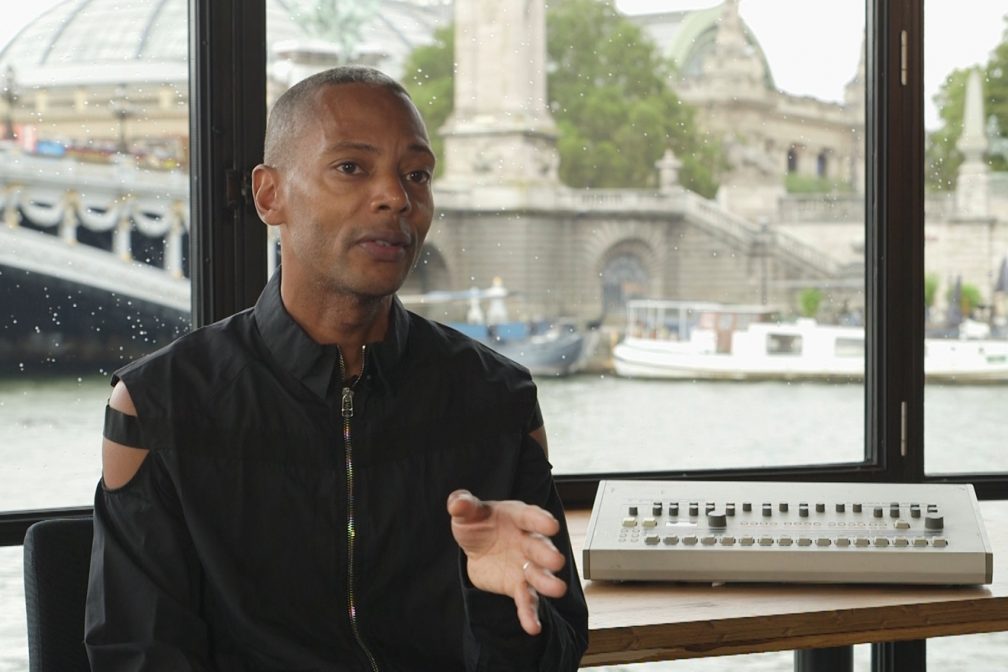
Jeff Mills celebrates the iconic Roland TR-909 through his history and cherished secrets
The master of the machine honors 909 Day
Each year on September 9, the world celebrates 909 day, and if there were such an accolade as the king or the master of the iconic Roland TR-909 drum machine, it would be awarded to Jeff Mills. Considered by many as a brilliant techno DJ, producer and pioneer, there is little room to argue his mastery over the 909 machine. Those with any doubt will simply be directed to watch his critically acclaimed Exhibitionist 2 documentary, which essentially serves as a masterclass on how to create techno using the 909.
In celebration of 909 Day, Roland sat down with Jeff Mills at Flow Paris for an insightful chat on his history with the revolutionary machine as well as a deep-dive on his projections on how Roland's equipment and music technology will shape the future. Find the video below, and check out the full interview afterwards.
How did you discover the TR-909?
I discovered the Roland TR-909 around the late ‘70s, when I was trying to play music, make music and trying to understand what the key instruments were that generated a certain sound. For dance music around that time, it was drum machines. The LinnDrum, Sequential Circuits and a few other machines were so incredibly expensive that you could [only] hear about these machines and those sounds on other peoples’ records.
It wasn’t until the mid-‘80s when more low-cost and affordable machines started to pop up in music shops around Detroit. I couldn’t afford a drum machine like that then. I think my first drum machine was a Korg something-01—a very small, tiny machine that had fixed sounds in it. I had it slightly modified to make one of the sounds a little different, but I was already using this very small machine in a DJ setup. So at a certain point, I would switch right over to this machine and play it as long as I could, then mix tracks on top of that to seem like I was modifying it. This was as early as 1981-1982.
What is it about the TR-909 that makes it a mainstay in your creative output?
At first, my main drum machine was not the Roland TR-909. It was the Akai R-15, and I moved to a TR-707 next, because that was more affordable at the time. And then to the 727, because percussion was really happening at a certain point. I didn’t get my hands on a 909 until 1986. It was for a band that I was connected to but the music was not techno—it was an industrial band. So I needed a machine with robust sounds, pipes and all types of really strong sounds—and that was my first contact with the 909.
How would you describe the sounds of the TR-909?
The sounds in the TR-909 are very simple in a way—very pure—almost to the point that you don’t have to do much to make them sound great. As a result, it’s easy to integrate this machine into music that has already been made with the machine. That, and maybe the TR-808, are the two machines that have this unique way that the sounds were made. It stands apart from other machines because of the purity—the natural feel of the voices.


